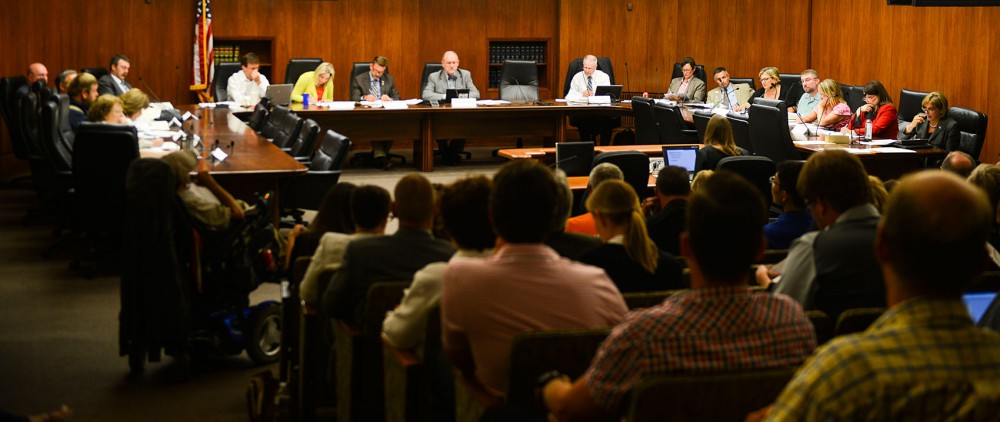The task force charged with ensuring a smooth rollout of Minnesota’s medical marijuana law began its duties last week.
The 23-member task force — which comprises elected and public safety officials, health care experts from the University of Minnesota and patients who might use the drug — met for the first time Thursday to review the law and to take questions on its upcoming implementation.
“My hopes for the law are that the people who are suffering from symptoms that have no relief through other methods have access to … some relief,” said Sen. Scott Dibble, D-Minneapolis, who co-authored the bill and co-chairs the task force.
In May, Gov. Mark Dayton approved the legislation that permits some Minnesotans with terminal illness, glaucoma, HIV/AIDS, seizures and other types of debilitating conditions to use medical marijuana in liquid, pill or vaporized form to treat qualifying health conditions by next summer.
During the task force’s upcoming five meetings, the group will discuss the science behind medical cannabis, learn about the experiences of the other 22 states that allow it, examine the federal perspective and cover issues surrounding substance abuse in Minnesota.
In February, the task force will provide the state Legislature with a full assessment of the law’s implementation, its potential consequences and its impact on patients, health care providers, law enforcement and the public.
Edward Ehlinger, the state’s commissioner of health and an adjunct associate professor in the University’s Division of Epidemiology and Community Health, will register Minnesota’s two medical cannabis manufacturers two months before the task force presents the report. The registration will allow patients to access medical marijuana — for a registry fee of $200, or $50 if they receive certain government aid — through at least one distribution site by July 1, 2015.
On Friday, the Minnesota Department of Health will host a meeting for interested manufacturers.
Task force member Pamela Gonzalez, who is a pediatrician and psychiatry adjunct assistant professorat the University, said she has reservations about the law increasing young children’s exposure to cannabinoids.
“We have to look at the impact on everybody,” she said. “I think that No. 1 is children because they have more years ahead of them.”
Gonzalez said she’s worried about marijuana as a gateway drug, adding that she’s heard of stories about minors showing up in emergency rooms after getting poisoned by e-cigarettes or being exposed to edibles.
But Gonzalez said she thinks the law could possibly help children in certain cases.
“I want to make sure that as we move along, the questions are being asked,” she said.
But others on the task force said they would like to see fewer restrictions on medical cannabis use.
“I hope that the task force would see the value in reforming our laws so that we can get medical marijuana to more people right now,” said Rep. Pat Garofalo, R-Farmington, a task force member and medical marijuana supporter. “The bill is extremely restrictive.”
Dibble said he wants the group to continue discussions on the drug’s availability and what symptoms the law covers, adding that he would support looping chronic pain into the list of qualifying conditions.
Gonzalez said despite her initial opposition to the legalization of medical cannabis, she’s now working to reach compromises.
“I was actually against the legislation,” she said. “But once invited to be on the force, my take on it is — it’s happening anyway, and we need voices from all sides to talk about it.”
Even though the law’s implementation is nearing, some avid supporters say they want the process to move faster.
“It’s not as fast as some of us would like, but slow is better than nothing at all,” Garofalo said.






















